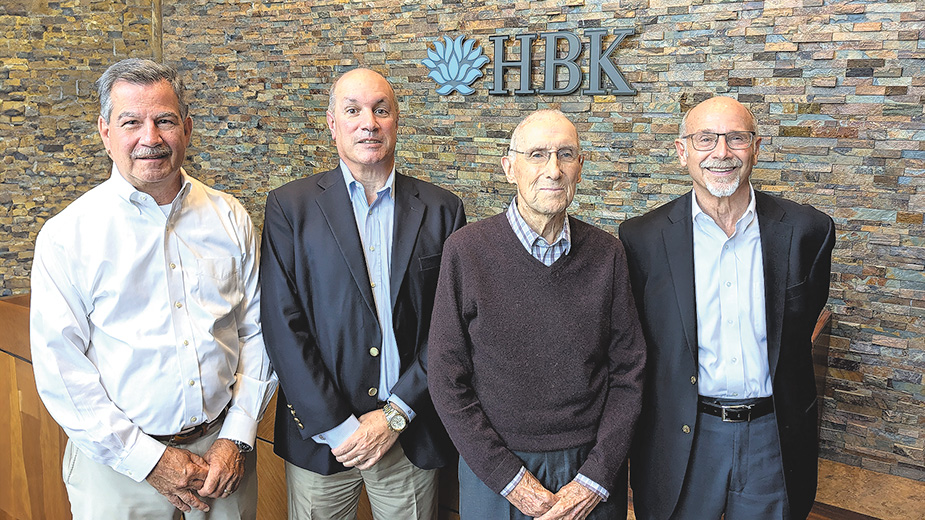Technology, AI and the Future of HBK
Editor’s note: This story is part of a 10-page section in our print edition that is content sponsored by HBK.
YOUNGSTOWN, Ohio – From manually operated adding machines to sophisticated software to massive amounts of data that are stored remotely in the cloud, the accounting and financial services sector has undergone a wild technological transformation over the past 75 years.
It’s still evolving and evolving fast.
“From everything you read, AI (artificial intelligence) is going to have a large impact on every industry,” says Jim Dascenzo, CPA and Principal at HBK CPAs & Consultants, Canfield. “How is that going to affect us? We’re constantly looking for ways to improve the business, to grow our business and to be better.”
Artificial intelligence could be beneficial to firms such as HBK if it is used practically, adds Philip Carlon, CPA and Principal. “We’re starting to use some different software which have AI in it to make audits more efficient,” he says. “I think that’s going to continue to grow quite a bit.”
Technology is certainly going to play a role in mapping the future for HBK, Dascenzo says, as the firm embarks on developing a new strategic plan to guide the firm for the next decade and beyond. “We must stay current. We’re never going to be the first to try something. But we’re also not going to lag. We’re always going to be there – near the forefront.”
Still, HBK executives agree that AI is another tool, and that it could never replace the human interaction that is so valuable to the firm’s culture, its clients and its way of doing business.
Jim Rosa, Principal and CPA at HBK, says early news articles on the power of artificial intelligence sparked concern over whether AI could impact the personal connection. “It made you feel like ‘where was our profession going? Is the human element going to be weeded out of the process?’”
As an example, Rosa cites ChatGPT, an AI program that can generate factual answers when posed with a question.
“We publish a variety of articles that are tax related, business related, and industry related,” he says.
The technology, he says, might provide a solid starting point for an article, but these facts mean nothing without context. “Good communication is not just facts,” he says. “It’s ‘what do those facts mean? What do those facts mean to you? What are the risks? What are the opportunities? That’s the real intelligence.”
Dascenzo, National Director of HBK’s manufacturing solutions group, says his division publishes two articles per month and he’s had several AI-originated articles come across his desk. He was not impressed.
“I read and edit each one before it gets published, and you can tell when somebody used ChatGPT to write an article,” he says. On those occasions when an AI-generated piece crossed his desk, Dascenzo simply sent it back.
“With our clients, it’s all about relationships,” Dascenzo says. “Technology will continue to evolve, but you could never replace that human interaction.”
Copyright 2024 The Business Journal, Youngstown, Ohio.




